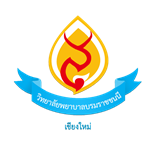The Relationships between Knowledge, Self-Efficacy, and Attitude Towards Breastfeeding and Breastfeeding Behaviors in First-Time Postpartum Mothers
Keywords:
Knowledge, Perceived Self-Efficacy, Attitude Towards Breastfeeding, Breastfeeding Behaviors, First-Time Postpartum MothersAbstract
The objective of this descriptive research was to examine the relationship between knowledge, self-efficacy, attitude towards breastfeeding, and breastfeeding behavior in first-time postpartum mothers. Participants were 90 first-time postpartum mothers who were selected by a purposive sampling technique. The research tools were questionnaires consisting of personal data, knowledge, perceived self-efficacy, attitude toward breastfeeding, and breastfeeding behaviors. Reliability was calculated by measuring internal consistency in terms of Cronbach’s alpha at 0.83, 0.79, 0.74, and 0.80, respectively. The data were analyzed using descriptive statistics and the Pearson correlation coefficient.
The results found that knowledge was at the highest level, which was 25.55 percent; at the moderate level, with 61.11 percent; and at the lowest level, with 13.34 percent. Self-efficacy in breastfeeding was at a good level (Mean = 4.07, S.D. = 0.15). Attitude toward breastfeeding was at a good level (Mean = 3.98, S.D. = 0.56). As well as, breastfeeding behavior was at a good level (Mean = 4.03, S.D. = 0.12). Knowledge, perceived self-efficacy, and attitudes towards breastfeeding had a positive relationship with breastfeeding behaviors with statistical significance at the 0.01 level (r = 0.299, 0.285, and 0.226, respectively). Therefore, health personnel and nurses should organize activities that encourage first-time postpartum mothers to have knowledge, a good attitude towards breastfeeding, and a high level of perceived self-efficacy in breastfeeding in order to develop effective breastfeeding behaviors.
References
กรมอนามัย. (2552). แผนยุทธศาสตร์ กรมอนามัย พ.ศ.2553-2556. กรุงเทพฯ: สามเจริญพาณิชย์.
เจตพล แสงกล้า. (2557). ปัจจัยที่มีผลต่อการเลี้ยงลูกด้วยนมแม่อย่างเดียว กรณีศึกษาในเขตกึ่งเมือง กึ่งชนบทจังหวัดกาญจนบุรี. วิทยานิพนธ์ปริญญาศิลปศาสตรมหาบัณฑิต (วิจัยประชากรและสังคม). บัณฑิตวิทยาลัย มหาวิทยาลัยมหิดล.
ปรียนุช ชัยกองเกียรติ. (2561). ปัจจัยที่มีความสัมพันธ์กับพัฒนาการสงสัยล่าช้าของเด็กปฐมวัย. วารสารมหาวิทยาลัยนราธิวาสราชนครินทร์ สาขามนุษยศาสตร์และสังคมศาสตร์, 5(2), 161-171.
ภัทรพร ชูประพันธ์, วีณา เที่ยงธรรม และปาหนัน พิชยภิญโญ. (2557). ปัจจัยที่มีอิทธิพลต่อการเลี้ยงลูกด้วยนมแม่อย่างเดียว 6 เดือน ของแม่ในเขตภาคกลางตอนล่าง. วิทยานิพนธ์ปริญญาวิทยาศาสตรมหาบัณฑิต(สาธารณสุขศาสตร์) สาขาวิชาการพยาบาลสาธารณสุข คณะสาธารณสุขศาสตร์ มหาวิทยาลัยมหิดล.
มยุรา เรืองเสรี และวราทิพย์ แก่นการ (2562). ปัจจัยที่มีผลต่อระยะเวลาการเลี้ยงลูกด้วยนมแม่อย่างเดียวอย่างน้อย 6 เดือนของมารดาวัยรุ่นหลังคลอดในเขตรับผิดชอบของโรงพยาบาลส่งเสริมสุขภาพตำบล อำเภอเมือง จังหวัดอุบลราชธานี. วารสารการพยาบาลและการดูแลสุขภาพ, 37(1), 195-204.
มาลีวัล เลิศสาครศิริ และสาลี่ แซ่เบ๊. (2561). ความสัมพันธ์ระหว่างการรับรู้สมรรถนะของตนเองความรู้สึกมีคุณค่าในตัวเองและเจตคติต่อการเลี้ยงลูกด้วยนมแม่กับพฤติกรรมการเลี้ยงลูกด้วยนมแม่ ของมารดาวัยรุ่นหลังคลอดครรภ์แรก. วารสารการพยาบาลและการศึกษา, 11(3), 10-21.
ลักขณา ไชยนอก. (2558). รายงานวิจัยเรื่องปัจจัยที่มีอิทธิพลต่อพฤติกรรมการเลี้ยงลูกด้วยนมแม่ของมารดาวัยรุ่น หลังคลอดในโรงพยาบาลมหาราชนครราชสีมา. วิทยานิพนธ์พยาบาลศาสตรบัณฑิต สำนักวิชาพยาบาลศาสตร์ มหาวิทยาลัยเทคโนโลยีสุรนารี.
ศิริวรรณ แสงอินทร์, ณิชากร ชื่นอารมณ์ และรุจิรา เฉิดฉิ้ม. (2563). ปัจจัยทำนายการเลี้ยงลูกด้วยนมแม่อย่างเดียว 6 เดือน ในเขตภาคตะวันออกของประเทศไทย. วารสารคณะพยาบาลศาสตร์ มหาวิทยาลัยบูรพา, 38(3), 22-34.
สำนักงานสถิติแห่งชาติ ประเทศไทย. (2559). โครงการสำรวจสถานการณ์เด็กและสตรีในประเทศไทยพ.ศ. 2558-2559,รายงานผลฉบับสมบูรณ์. กรุงเทพฯ: สำนักงานสถิติแห่งชาติ ประเทศไทย.
สำนักงานสถิติแห่งชาติ ประเทศไทย. (2566). โครงการสำรวจสถานการณ์เด็กและสตรีในประเทศไทยพ.ศ. 2565, รายงานผลฉบับสมบูรณ์. กรุงเทพฯ: สำนักงานสถิติแห่งชาติ ประเทศไทย.
สำนักงานสถิติแห่งชาติประเทศไทย. (2563). โครงการสำรวจสถานการณ์เด็กและสตรีในประเทศไทยพ.ศ. 2562, รายงานผลฉบับสมบูรณ์. กรุงเทพฯ: สำนักงานสถิติแห่งชาติ ประเทศไทย.
สุภาพันธ์ จันทร์ศิริ, วรรณา พาหุวัฒนกร และฉวีวรรณ อยู่สำราญ. (2560). อิทธิพลของทัศนคติ การคล้อยตามกลุ่มอ้างอิงและการรับรู้สมรรถนะแห่งตนต่อความตั้งใจในการเลี้ยงลูกด้วยนมแม่อย่างเดียวในสตรีตั้งครรภ์วัยรุ่น. วารสารพยาบาลศาสตร์, 35(4), 49-60.
สุวรรณา ชนะภัย, นิตยา สินสุกใส, นันทนา ธนาโนวรรณ และวรรณา พาหุวัฒนกร. (2557). ความรู้ทัศนคติ การรับรู้สมรรถนะในตนเอง และการสนับสนุนจากสามีและพยาบาล ในการทํานายการเลี้ยงลูกด้วยนมแม่อย่างเดียว 6 สัปดาห์. วารสารพยาบาลศาสตร์, 32(1), 51-60.
Awaliyah, S.N., Rachmawati, I.N. & Rahmah, H. (2019). Breastfeeding self-efficacy as a dominant factor affecting maternal breastfeeding satisfaction. BMC Nursing, 18(1), 30. https://doi.org/10.1186/s12912-019-0359-6
Bandura, A. (1997). Self-efficacy: Toward a unifying theory of behavioral change. Psychological Review, 84, 191-215.
Faul, F., Erdfelder, E., Lang, A. G., & Buchner, A. (2007). G*Power 3: A flexible statistical power analysis program for the social, behavioral, and biomedical sciences. Behavior Research Methods, 39(2), 175-191. doi: 10.3758/bf03193146
Hamze, L., Mao, J., Reifsnider, E. (2019). Knowledge and attitudes towards breastfeeding practices: a cross-sectional survey of postnatal mothers in China. Midwifery, 74, 68-75.
Hinic, K. (2016). Predictors of breastfeeding confidence in the early postpartum period. Journal of Obstetric, Gynecologic & Neonatal Nursing, 45(5), 649-660.
Kronborg, H., Harder, I., & Hall, E. O. (2015). First time mothers' experiences of breastfeeding their newborn. Sexual & Reproductive Healthcare: Official Journal of the Swedish Association of Midwives, 6(2), 82–87. https://doi.org/10.1016/j.srhc.2014.08.004
Lyons, K. E., Ryan, C. A., Dempsey, E. M., Ross, R. P., & Stanton, C. (2020). Breast Milk, a Source of Beneficial Microbes and Associated Benefits for Infant Health. Nutrients, 12(4), 1039. https://doi.org/10.3390/nu12041039
Madhvi, S., Logeshwari, B. M., & Shubhavee, R. (2020). Comparison of Breastfeeding Practices between Primigravida and Multigravida. International Journal of Science and Research, 9(12), 563-565. doi: 10.21275/SR201202085454
Maleki-Saghooni, N., Barez, M. A., Moeindarbari, S., & Karimi, F. Z. (2017). Investigating the breastfeeding self-efficacy and its related factors in primiparous breastfeeding mothers. International Journal of Pediatrics, 5(12), 6275-6283.
Palaska, E., Lykeridou, A., Zyga, S., & Panoutsopoulos, G. (2020). Association Between Breastfeeding and Obesity in Preschool Children. Materia Socio-Medica, 32(2), 117–122. https://doi.org/10.5455/msm.2020.32.117-122
Rattasumpun, S. & Keawma, B. (2018). Factors Predicting Successfulness in Exclusive Breastfeeding among Working Mothers. Journal of Research in Nursing-Midwifery and Health Sciences, 38(4), 14–24.
World Health Organization. (2021). Breastfeeding. Retrieved April 10, 2023 from http://www.who.int/ topics /breastfeeding/en.

Downloads
Published
How to Cite
Issue
Section
License
Copyright (c) 2023 Journal of Nursing and Public Health Research

This work is licensed under a Creative Commons Attribution-NonCommercial-NoDerivatives 4.0 International License.
1. บทความหรือข้อคิดเห็นใด ๆ ที่ปรากฏในวารสารวิจัยการพยาบาลและการสาธารณสุข ที่เป็นวรรณกรรมของผู้เขียน บรรณาธิการไม่จำเป็นต้องเห็นด้วย
2. บทความที่ได้รับการตีพิมพ์ถือเป็นลิขสิทธิ์ของ วารสารวิจัยการพยาบาลและการสาธารณสุข








